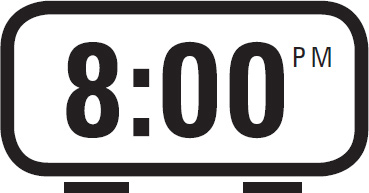

As Jack Nicholson famously said in The Shining, “It’s finally time to take your medicine, you whelp.” But which of your fifteen jars of nighttime medication lined up along the ledge above your toothpaste do you really need to take? Maybe all. Or … maybe none. That’s because placebos are getting stronger! Yes, those sugar pills that are used by doctors and researchers to trick the control groups of clinical trials are working better and better every day! So powerful are these supposedly innocuous and inert placebo pills that it’s getting harder to beat them with actual medicines.
This seems great—someday soon you may be able to pop an empty gelcap instead of your antidepressant!—but it also means, as an article in the journal JAMA: Psychiatry says, that “increasing placebo response rates contribute to decreasing drug-placebo differences and increasing numbers of failed antipsychotic trials, both of which increase the cost of drug development, delay the clinical availability of new antipsychotic medications, and even precipitate reductions in pharmaceutical company research for psychiatric disorders.”
The reason placebos are getting stronger may be due to your brain’s increasing confidence in the power of these medications. More so than in the 1960s, we expect to be able to medicate away our problems. We expect drugs to work. And so they do. In fact, almost anything that you expect to have an effect will have that effect, from fringe therapies that show astounding health benefits to the “nocebo” effect—men in one study who were told that a common prostate medicine could lead to sexual dysfunction had twice the rate of sexual dysfunction of men who were not told about the possible side effect. We pooh-pooh the power of psychosomatics as “all in your mind,” but what is in your mind has the stunning potential to leak out of that bag surrounding your gray matter and into the rest of your body. The power of your mind can make the things you believe about your body come true.
But overconfidence in medicines can also make them work worse. When you expect something to work, it does. But when you expect a pharmaceutical treatment to be a cure or a magic wand that solves all your woes, it may undercut the motivation to do all those other things outside medication that could help you. Hey, if you’re taking a magic pill, why should you exercise and eat a healthy diet? In this case, you may take two steps forward with the medicine, but also one step back because of lazy health habits. Back in the day, we distrusted meds and so kept doing everything else we could do to be well, making the people on these meds overall healthier and making the effect of the medication seem stronger.
The message for you tonight as you reach for your meds is that there are amazing products on the market that can help your body and your brain heal and maintain itself in amazing ways. But don’t forget about all those other things you could and probably should be doing. Believing in a pill will help it do its work, whether it’s the right pill or not. But believing that a pill is all you need can link the extent of your wellness to an imperfect chemical.
Crystal Healing
It’s time to stop dissing crystal healing and the power of magnet watches. What you believe will work is very likely to work. Do you really care if you feel better due to the power of the crystal or due to the power of your mind? This week, find something you believe in and give it a try. The subjective experience that your brain creates for your body is what matters. (And not the odd looks you get while wearing a tinfoil helmet.)